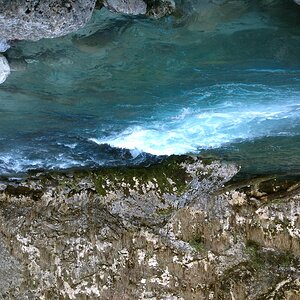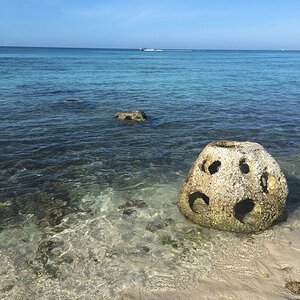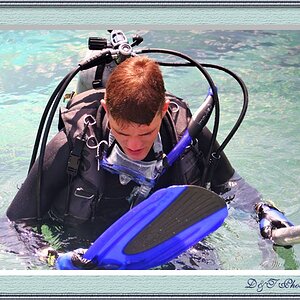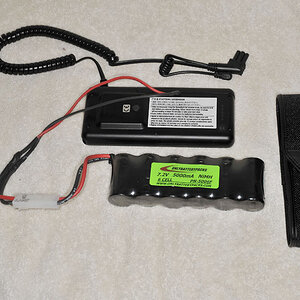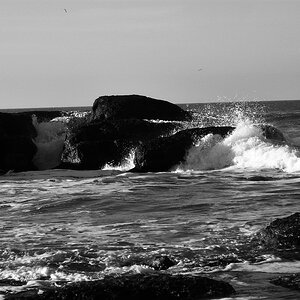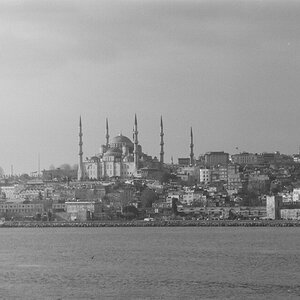JimMcClain
No longer a newbie, moving up!
- Joined
- May 25, 2014
- Messages
- 616
- Reaction score
- 420
- Location
- Feather River Country
- Website
- 1footinthegrave.com
- Can others edit my Photos
- Photos OK to edit
Are there enough desktop PC geeks here to discuss new computer builds? Is this the right forum section to do it in?
I've decided that my aging machine needs to be retired. I have plenty of experience building computers, but mostly for show (I used to be a modder and was featured last in CPU Magazine's Oct. 2003 issue). My lungs won't let me do all that grinding, cutting and painting anymore, but I think I can handle assembly.
My biggest problem is not following the technology for the last several years. My last build was intended to last the rest of my life, so when it was done, I quit reading about PC gear and participating in the modding forums. But them damn doctors cain't get nuthin' right and I'm still here. Now I want to put together a machine that will handle these huge file sizes digital photography produces and managing them with high end programs like Lightroom and Photoshop.
Another big problem is money. My income is very limited, so I have to figure it will take many months to get all the right gear for this new machine. Buying a D5300 and a couple lenses, a tripod, etc. took most of my disposable income last month. Been trying to sell stuff I don't use and can live without on ebay. I don't mind it taking a little time though, as long as it's, you know, like the next week or so. Dreaming, of course.
So, last week I ordered a Corsair Obsidian Series 350D Performance Micro ATX Computer Case. It will fit nicely under my desk and still let me put my headphones on top when I'm not using them (I live in a thin-walled apartment and like my music and movies loud). My current machine is a mATX and it's plenty big enough for my needs. This case is a little taller, but not as deep and has plenty of room inside for the gear I think I will use and still have good air flow.
Last night I ordered a couple of SDDs (solid state drives): Samsung 128GB 850 PRO Series SATA 2.5" SSD MZ-7KE128BW B&H One will be for my OS, Windows 7 Professional (haven't decided if I wanna go to 8.1) and most of my programs. The other will be used for the PS scratch drive, the Windows page file and possibly the LR catalog. My current plan is to also get a 500GB SSD for storage of images and other files. My current machine has only a single 500GB HDD with about half of it free, so when the time comes, I think I can just add an additional SDD. Some research I did suggested 4 drives to handle the work (a 4th was used for current projects and the LR catalog), but I think 3 will work for me. I think I like the idea of going all SSD this time. I've never used SSDs before.
Not sure I should continue here. Everyone hates a lifeless discussion. I'm hoping there are at least a few PC enthusiasts that would be interested in a discussion about building a powerful desktop machine and willing to offer their ideas and advice. I'm not sure what else will go into this build. Looking at Intel LGA 1150 4th gen processors, maybe a Z97 chipset micro ATX mobo and a NVIDIA Quadro graphics card. But I'm not sure I should even be discussing this all here, if no one is interested.
Jim
I've decided that my aging machine needs to be retired. I have plenty of experience building computers, but mostly for show (I used to be a modder and was featured last in CPU Magazine's Oct. 2003 issue). My lungs won't let me do all that grinding, cutting and painting anymore, but I think I can handle assembly.
My biggest problem is not following the technology for the last several years. My last build was intended to last the rest of my life, so when it was done, I quit reading about PC gear and participating in the modding forums. But them damn doctors cain't get nuthin' right and I'm still here. Now I want to put together a machine that will handle these huge file sizes digital photography produces and managing them with high end programs like Lightroom and Photoshop.
Another big problem is money. My income is very limited, so I have to figure it will take many months to get all the right gear for this new machine. Buying a D5300 and a couple lenses, a tripod, etc. took most of my disposable income last month. Been trying to sell stuff I don't use and can live without on ebay. I don't mind it taking a little time though, as long as it's, you know, like the next week or so. Dreaming, of course.
So, last week I ordered a Corsair Obsidian Series 350D Performance Micro ATX Computer Case. It will fit nicely under my desk and still let me put my headphones on top when I'm not using them (I live in a thin-walled apartment and like my music and movies loud). My current machine is a mATX and it's plenty big enough for my needs. This case is a little taller, but not as deep and has plenty of room inside for the gear I think I will use and still have good air flow.
Last night I ordered a couple of SDDs (solid state drives): Samsung 128GB 850 PRO Series SATA 2.5" SSD MZ-7KE128BW B&H One will be for my OS, Windows 7 Professional (haven't decided if I wanna go to 8.1) and most of my programs. The other will be used for the PS scratch drive, the Windows page file and possibly the LR catalog. My current plan is to also get a 500GB SSD for storage of images and other files. My current machine has only a single 500GB HDD with about half of it free, so when the time comes, I think I can just add an additional SDD. Some research I did suggested 4 drives to handle the work (a 4th was used for current projects and the LR catalog), but I think 3 will work for me. I think I like the idea of going all SSD this time. I've never used SSDs before.
Not sure I should continue here. Everyone hates a lifeless discussion. I'm hoping there are at least a few PC enthusiasts that would be interested in a discussion about building a powerful desktop machine and willing to offer their ideas and advice. I'm not sure what else will go into this build. Looking at Intel LGA 1150 4th gen processors, maybe a Z97 chipset micro ATX mobo and a NVIDIA Quadro graphics card. But I'm not sure I should even be discussing this all here, if no one is interested.
Jim



![[No title]](/data/xfmg/thumbnail/42/42040-7a66cabbeffd44783ea44a91ef4d0e70.jpg?1619739987)
![[No title]](/data/xfmg/thumbnail/31/31014-6b1a572624824b852f5adaf3594767af.jpg?1619734569)
